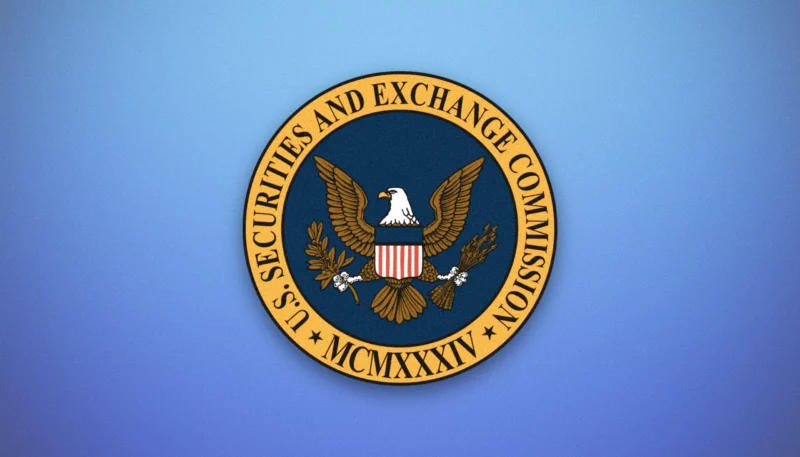In October, the SEC finally completed its implementing regulations to Title III of the JOBS Act, more commonly known as the “crowdfunding” exemption. The 600-page release can be found here. I’m not going to bother summarizing these regulations, as so many others have done a very good job doing that already. So, as I previously did with the proposed regulations, I’ll instead offer some of my thoughts on and reactions to the final rules:
- Startups won some and lost some in the final rules. As I observed previously, in drafting the proposed rules and now the final rules, the SEC does not appear to be hostile to the concept of crowdfunding. The SEC appears to have made a genuine attempt to make this exemption workable. As compared to the proposed rules, the SEC has made some changes that benefit issuers and made other changes that don’t. Here is an example of a change to the detriment of issuers: Sec. 302(a) of Title III of the JOBS Act provides for caps on the amount that an investor can invest in crowdfunding offerings in any 12-month period. It is poorly drafted, making terrible use of the word “or,” causing the amount of the investment caps to be unclear in many situations. In the proposed rules, The SEC resolved these ambiguities using interpretations that allow for larger rather than smaller amounts. In the final rules, after receiving feedback from investor protection advocates, it decided to use the smaller amount. I don’t think this is a major issue, as the whole point of crowdfunding is to get lots of investors who invest small amounts of money, but nonetheless, this change does not benefit startups. But startups gain in other areas, such as the reduced requirement of getting audited financials (which is discussed next).
- The SEC has (ever so slightly) walked back the requirement of getting audited financials on a crowdfunding raise of over $500,000. One of the main criticisms that I and many others have expressed about the crowdfunding exemption is that for any capital raise over $500,000, audited financials are required. Audited financials are usually expensive. Since the exemption is capped at $1 MM, requiring audited financials greatly reduces the cost-effectiveness of the exemption. The SEC has taken some of this criticism to heart, and in the final rules, first-time users of the exemption need only have their financials reviewed by an independent public accountant rather than be audited (which is a lot less expensive). In addition, in contrast to what was provided in the proposed rules, subsequent annual reports that crowdfunding issuers must file will not have to include reviewed or audited financial statements.
- Funding portals will, after all, be able to curate their offerings. One of my major concerns about the proposed rules was the prohibition on the curation of investment offerings by funding portals. Under the JOBS Act, funding portals are prohibited from offering investment advice. In the proposed rules, the SEC interpreted this to limit the ability of a funding portal to curate the offerings conducted through their platform. This was especially troublesome, given that the proposed rule required a funding portal to deny access to its platform to issuers when the funding portal believes the issuer or the offering presents the potential for fraud or otherwise raises concerns regarding investor protection. In other words, funding portals were given some responsibility for which offerings would appear on their platform but were prohibited from exercising too much discretion. Luckily, in the final rule, funding portals are able to decide whether and under what terms to allow a particular issuer to offer and sell securities on their platform, so long as they do not advertise, make statements, or otherwise represent that the offerings listed on their platform are safer or better investments than those listed on other platforms.
- In the short term, I expect the new exemption to be used heavily. There are a lot of companies starting crowdfunding portals. There is no shortage of entrepreneurs who would like money to fund their business ideas. There are also many amateur investors who would like to get involved in funding startups. This combination means we can expect a lot of activity on this front. In the coming years, I expect that we’ll see levels of activity in equity crowdfunding that match, if not exceed, those of donation-based crowdfunding platforms, such as Kickstarter. As I mentioned previously, the SEC has certainly required some significant disclosure in both the proposed and final rules. This will mandate a significant amount of compliance work, and it will be interesting to see the extent to which the funding portals take on this compliance work vs. the issuer’s legal counsel. Many funding portals advertise that they take care of the disclosure documents and no law firm is required. Given the small size of these offerings, compared to the large amount of compliance work required, it is likely that funding portals that offer this service will rely on document automation without attorney review or even much human review altogether.
- In the long term, I am much less certain. This could go one of two ways. It could be largely successful and revolutionize the way startups are funded, similar to the way Kickstarter has, but on an even larger scale. In this scenario, there may be people who lose money on bad investments, but such stories would be dwarfed by the success stories, and would not end up dissuading people from continuing to invest in crowdfunding offerings. To put it in perspective, Kickstarter donors don’t get any (significant) returns, and it hasn’t hurt the popularity of donation-based crowdfunding. I can also see a scenario in which crowdfunding could be successful for the first few years, but the investments themselves perform very poorly because all of the best investment opportunities were cherry-picked by VCs and other more established investors. Over time, in this scenario, crowdfunding would get a bad reputation as a place to lose a lot of money, and the investor-side demand would eventually drop off. As investor losses mount, the funding portals themselves could be sued for securities fraud (especially given their role in preparing the largely cookie-cutter disclosure documents and the investor-protection duties they are given in the regulations). As investor interest waned and funding portals close, crowdfunding would fade away after the initial burst in interest. It will be interesting to see which of these scenarios, if either, comes to pass.
The new regulations take effect on May 16, 2016. I expect 2016 to be an interesting year for startup finance.
This article is for general information only. The information presented should not be construed to be formal legal advice nor the formation of a lawyer/client relationship.





